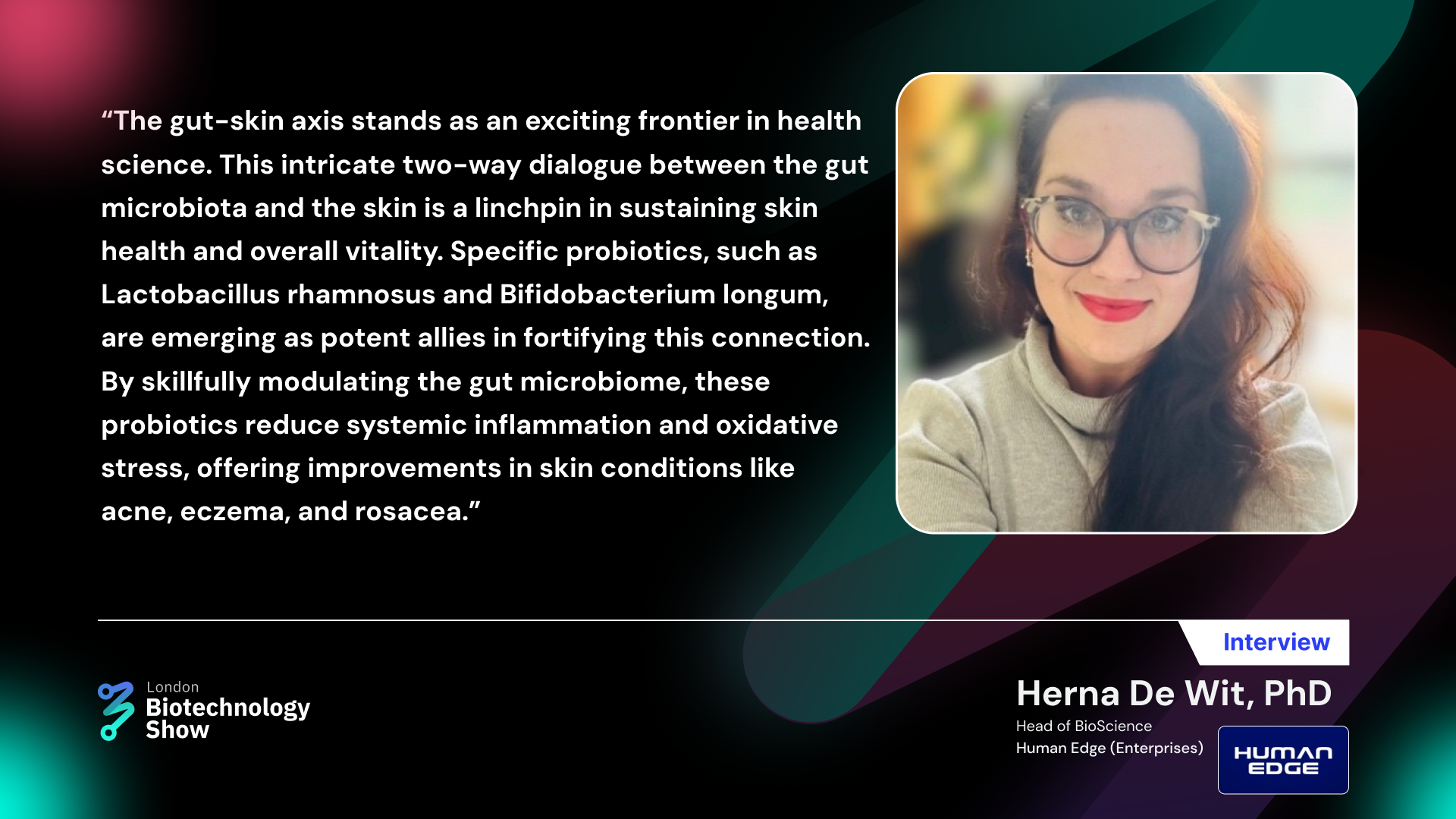Are biotech advancements reshaping healthcare by directly targeting the core processes of ageing, promising longevity and a bolstered state of health? In a recent interview, Herna De Wit, Head of Bioscience at Human Edge, talked with Muhammad Younis about the interplay of these variables, and the future that lies on the horizon.
#LBS: How do you see biotechnology playing a pivotal role in advancing longevity and improving overall health?
Herna De Wit: Biotechnology stands at the forefront of modern healthcare, offering transformative potential for longevity and overall well-being. By leveraging the profound insights of molecular biology and genetics, biotech interventions can target the very roots of ageing, ushering in a new era of precision medicine customised to each individual's unique genetic blueprint. This breakthrough promises not only treatment but the prevention of diseases, potentially granting us a longer, healthier life. It converges with health tech, enabling data-driven health monitoring and personalised treatments, revolutionising healthcare to become more proactive and tailored to our distinct needs. With this holistic synergy, guided by ethical considerations, we will be enabled to develop life-saving treatments and preventive measures, and proactively enhance our well-being for a brighter, healthier future.
#LBS: Could you shed light on the fascinating interplay between the gut and skin, known as the gut-skin axis? What pivotal role do probiotics play in optimising this connection?
Herna De Wit: The gut-skin axis stands as an exciting frontier in health science. This intricate two-way dialogue between the gut microbiota and the skin is a linchpin in sustaining skin health and overall vitality. Specific probiotics, such as Lactobacillus rhamnosus and Bifidobacterium longum, are emerging as potent allies in fortifying this connection. By skillfully modulating the gut microbiome, these probiotics reduce systemic inflammation and oxidative stress, offering improvements in skin conditions like acne, eczema, and rosacea. Beneficial microbes strengthen the immune response, leading to a strong defence against skin infections and ailments. These remarkable examples underscore the profound impact of probiotics on skin health, highlighting the harmonious partnership between our gut and skin, and demonstrating how nurturing our inner ecosystem can pave the way for resilient skin.
#LBS: Can you delve into the intriguing concept of personalised "biohacks" for enhancing longevity and health? How do you customise these approaches to meet individual needs and aspirations?
Herna De Wit: Personalised "biohacks" represent a cutting-edge approach to optimising longevity and health. These biohacks involve tailoring interventions based on an individual's unique genetic, metabolic, and lifestyle factors. It's a combination of biotechnology, precision medicine, and data-driven insights. By leveraging advancements in biotechnology, we can analyse an individual's genetic makeup, biomarkers, and health data to create customised strategies. These approaches encompass dietary modifications, exercise regimens, supplementation, and even targeted therapeutics. The key is recognizing that one size doesn't fit all, and by personalising biohacks, we can address specific health goals, mitigate risks, and unlock the full potential of longevity science, ultimately improving individual well-being and quality of life.
#LBS: Envisioning the future of healthcare through bioscience innovation, what transformations do you anticipate in the forthcoming years?
Herna De Wit: We can anticipate a shift towards more personalised and precision medicine approaches, where treatments are tailored to an individual's unique genetic makeup and health profile. This will not only enhance treatment efficacy but also reduce side effects.
We can expect significant advancements in the field of regenerative medicine, including the use of stem cells and gene therapies to treat previously incurable conditions.
Bioscience innovations are likely to lead to the development of more accurate and accessible diagnostic tools, enabling earlier disease detection and intervention. The integration of digital health technologies and artificial intelligence will revolutionise healthcare delivery, improving patient monitoring, treatment optimization, and overall healthcare outcomes.
Lastly, as we continue to decode the complexities of the human microbiome and its impact on health, we can anticipate novel interventions targeting the gut-skin axis and other crucial connections.
#LBS: In the context of healthcare, how impactful are events like the London Biotechnology Show in showcasing the transformative potential of biotech on the industry?
Herna De Wit: Events like the London Biotechnology Show play a pivotal role in showcasing the transformative potential of biotechnology within the healthcare industry. These gatherings provide a platform for biotech companies, researchers, and innovators to present their latest advancements and discoveries. Such events facilitate collaboration and knowledge exchange, fostering the development of groundbreaking therapies, diagnostic tools, and technologies. They also offer a glimpse into the future of healthcare by highlighting emerging trends, such as precision medicine, gene editing, and regenerative medicine.

